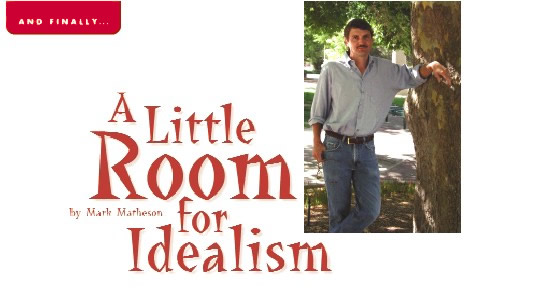
|
Vol.
12. No. 2
|
Fall
2002
|

I love working at the U.
I've come to know it as a community of remarkably dynamic people functioning in a context not entirely subject to the bottom line. It's an odd time to remember our slight exemption from the logic of profit and loss, when we're all feeling the smart of the deepest budget cut in many years. But I value the U as a place where the mind has a little more free play, where there are spaces for eccentricity and new visions of what real community might be. We're not quite yet entirely mainstream, and I think it's a good thing — for us and for the mainstream too — if we keep our distance.
In the 1920s Virginia Woolf wrote that Oxbridge "seemed a sanctuary in which are preserved rare types which would soon be obsolete if left to fight for existence" on the pavements of central London. This was no doubt far truer in Woolf's day than our own. As I think of my colleagues on the faculty here, they seem to me people who would clearly thrive in the world of business and government. I admire them for the strengths that would enable them to do that, but I think it's important that we preserve certain distinctions between the University and "downtown."
When Bill Whisner, a beloved philosophy professor, died suddenly in 1999, he was eulogized as a man who extended warmth and respect to everyone, who had as much time for a member of the custodial staff as for the president of the University. I can't imagine anyone not admiring Bill for this, but we have to admit, it's no way to build a corporate career. I like the University because chances are a little better here of finding someone like Bill and the egalitarian values he lived and practiced.
I've found a similar progressivism on many occasions among the University staff. I spoke this spring with Dawn Anderson and Hilary Kojima, who assist employees with disabilities who work at the U. They've both been doing this for five years and find the job deeply satisfying. When I asked them what they like about the U, they both spoke of the openness and diversity they find here. Hilary praised the U for hiring people with disabilities; she said she respects the institution because "it welcomes all."
Much of what the U offers students is self-evident, including the training they need to flourish in the business and professional fields they will soon enter. A less obvious benefit is that students are given a little time — though not nearly enough — to think, brood, and imagine. I see this as helpful not only to their own growth but also to the society they will go on to shape.
For those of us lucky enough to work with these students, the advantages are abundantly clear. Cynicism simply can't survive in their company. I've had moments of discouragement in my 11 years at the U, but never owing to a student. In fact, the intelligence, creativity, and goodwill of my students have been continually renewing for me, and, in speaking with my colleagues, I find my experience is by no means unique.
In 1852 John Henry Newman
wrote that a university education cultivates in students "a sure
tact" that enables them to know when to be serious and when to trifle,
and to be "serious with effect" and "to trifle with gracefulness."
Though I'm inclined to rate other benefits produced by the U a bit higher
than this last one, I appreciate Newman's view because it attests to an
institutional culture not entirely dictated by monetary interests and
goals. Of course, I'm the first to admit that his point about trifling
gracefully is not going to get Bernie very far with next year's legislature.
But I am unwilling to relinquish the encouraging of different visions
as one of the U's primary prerogatives and responsibilities.![]()
—Mark Matheson MA'85 is clinical assistant professor of English at the University.